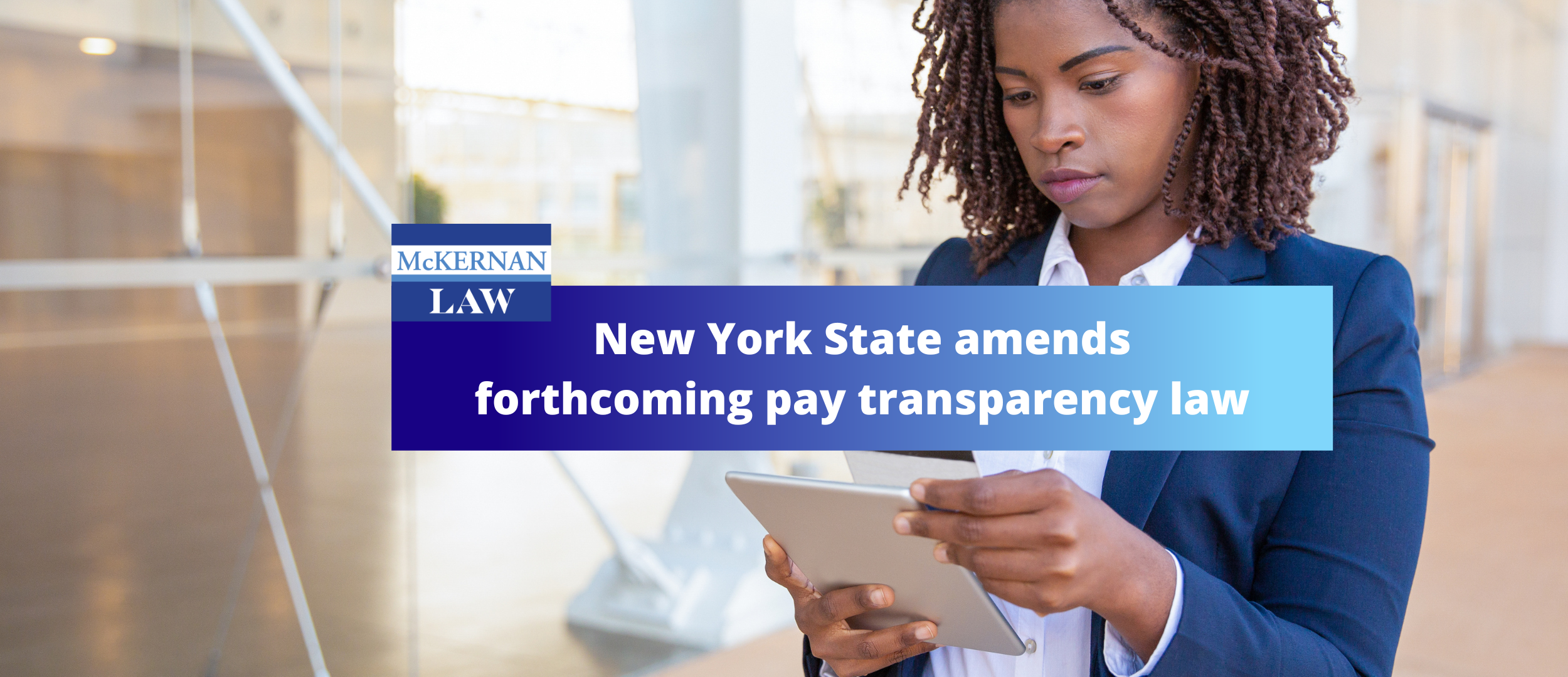
Welcome to Our Blog
SHOULD YOU OPT FOR A DIGITAL CLOSING?
Digital Closings are becoming increasingly popular, but they aren't right for everyone. Here are some things to consider before deciding whether or not to have a Digital Closing.
NATIONAL ELDER LAW MONTH:
National Elder Law Month takes place in May and emphasizes the importance of ongoing planning for seniors. It highlights key areas such as estate planning and asset protection, long-term care and Medicaid planning, guardianship and conservatorship, elder abuse and neglect, and healthcare decision-making. These aspects aim to safeguard seniors' assets, ensure proper care, protect against abuse, and enable individuals to make informed decisions about their health and well-being.
YOU SAY EMPLOYEE, I SAY INDEPENDENT CONTRACTOR: 12 BEST PRACTICES FOR AVOIDING WORK MISCLASSIFICATION SUITS IN THE GIG ECONOMY
Employers face challenges in navigating the evolving landscape of independent contractor classification, but it is crucial to understand and mitigate the associated liabilities. Misclassification extends beyond tax reporting and can result in civil and criminal lawsuits under the Fair Labor Standards Act. Employers may be held accountable for back pay, unpaid taxes, benefits, and other fees. There is no universal test for independent contractor status in litigation. The article provides 12 best practices to avoid misclassification suits… Written agreements, W-9 Forms, no job titles, separate files, no employee benefits, no evaluations, competitor analysis, limited control, job differentiation, agreed-upon payment, and avoiding indicators of employee status. Implementing these practices helps safeguard employers and ensure compliance in the gig economy.
EXEMPT ORGANIZATIONS FILING DEADLINE: DON'T RISK LOSING YOUR EXEMPTION
The deadline for calendar-year exempt organizations is Monday, May 15, 2023. Failing to file the required Form 990-series return or notice for three consecutive years can result in automatic loss of exemption, as per Internal Revenue Code Section 5033(j). However, organizations requiring additional time can request a 6-month automatic extension by submitting Form 8868, the application for Extension of Time to File an Exempt Organization Return. It's important to note that while an extension grants more time to file, it does not extend the deadline for paying taxes. The IRS encourages organizations to electronically file Form 8868 when requesting an extension.
NEW YORK CITY ISSUES FINAL RULES ON AI BIAS AUDIT LAW AND DELAYS ENFORCEMENT UNTIL JULY
The New York City Department of Consumer and Worker Protection (DCWP) has released final rules to implement a law mandating bias audits of AI-enabled systems used in employment and hiring decisions. The final rules expand the definition of AI and adjusts requirements for bias audit, data requirements, and published results. The DCWP has delayed enforcement of the law and final rules until July 5, 2023. Employers must now indicate the number of individuals assessed by an AEDT not included in the required calculations because they fall within an unknown EEOC category, and bias audit results must include the number of individuals in this category.
NEW YORK STATE AMENDS FORTHCOMING PAY TRANSPARENCY LAW
New York State has amended its upcoming pay transparency law, which will go into effect on September 17, 2023. The amendment specifies that the law will apply to jobs that will physically be performed in New York or those that report to a supervisor or office in New York. The amendment eliminates the recordkeeping requirements of the initial version of the law, but employers should maintain records to ensure compliance with wage-and-hour laws and in case of claims by an employee. The amendment also incorporates a definition of "advertisement" and makes technical corrections. Employers should review their job postings to ensure compliance with the updated law.
PREGNANT WORKERS FAIRNESS ACT
The Pregnant Workers Fairness Act (PWFA) is a new law that goes into effect on June 27, 2023 that requires employers with 15 or more employees to provide reasonable accommodations to pregnant workers for known limitations related to pregnancy, childbirth, or related medical conditions, unless it causes undue hardship. The law prohibits employers from discriminating against covered employees who request reasonable accommodations and requires them to engage in an interactive process to arrive at a reasonable accommodation. The PWFA protects against retaliation and ensures that pregnant workers can continue working with reasonable accommodations. Employers should update their policies, train supervisors and HR departments, and analyze potential accommodations to prepare for the new law.
Massive New Federal Reporting Requirements Will Start in 2024
Starting in 2024, new federal reporting requirements will be implemented for individuals who own 25% or more of a small entity, run a small business, or have substantial control over any company. These individuals will need to register in a federal database, which will require personal information, such as name, date of birth, residential address, ID number, and a photograph of the document. Existing companies as of January 1, 2024, will need to register by the end of that year, and new companies will need to register within 30 days of creation.
NEW JERSEY POLICE CRACKING DOWN ON DISTRACTED DRIVING IN APRIL
In an effort to reduce the number of distracted driving incidents, the New Jersey police are cracking down on drivers who text or use cell phones while driving. Distracted driving has been identified as a major contributor to nearly 800,000 motor vehicle crashes in the state from 2012-2016. Drivers who are caught texting or holding a cell phone while driving can expect to face a penalty of $200 to $400 for the first offense, and could be subject to additional fines and insurance points for subsequent violations. Stay safe on the road and avoid the penalties by keeping your phone out of reach while driving.
All Ages Should Take Part in Estate Planning
Everyone should take part in estate planning for a secure future. Start early for peace of mind. Learn why young, single, married, and older individuals should have key documents like a will, financial power of attorney, and more.
Employer Identification Numbers: What Nonprofits Should Know
Every nonprofit organization in the US needs an Employer Identification Number (EIN), which is a unique number used to identify an organization to the IRS. Nonprofits require EINs for various tasks, including filing tax forms, opening a business bank account, hiring employees, and applying for business licenses and permits.
ADVANTAGES OF A REVOCABLE TRUST
A revocable trust provides several advantages, including avoiding court intervention, ease of administration, direct distribution of assets, flexibility for future planning, and privacy. By placing assets in one operating base, you can direct how assets are distributed, specify who will manage finances in the event of disability or incapacity, and limit access to the trust document. It's important to note that only assets placed in the trust will be subject to its rules, and you should work with an attorney to determine which assets to transfer for maximum effectiveness.













